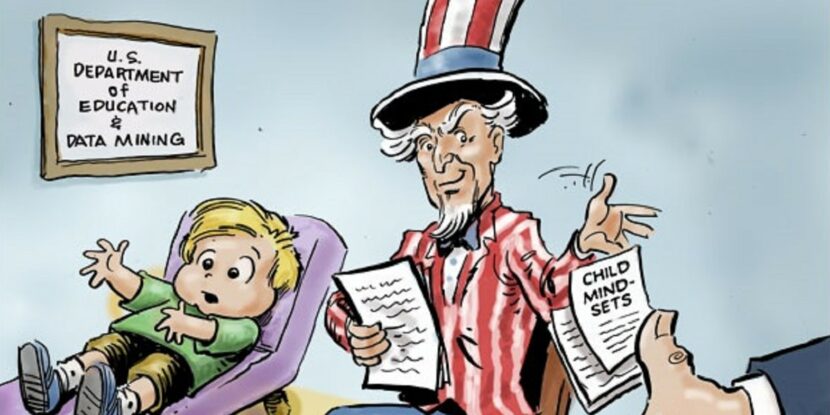If the White House School Safety Commission is to make wise and helpful recommendations to protect school children, it needs to have good information. Sadly, most of the witnesses chosen to discuss the mental health aspects of this complex problem at a commission meeting earlier this month only provided limited and potentially dangerous recommendations: namely, the increased mental screening of school children and the increased use of psychotropic drugs in children — despite their connection to school violence.
Dr. Gabrielle Carlson from the State University of New York staunchly defended psychiatric medications, giving several cases where she thought they had been successful, and Dr. Sheryl Kataoka vehemently denied any connection between the medications and school shootings. Dr. Carlson’s case discussions lacked any mention of the disturbing studies on what these medications may do to the brains of developing children and adolescents over the long-term. Additionally, Dr. Kataoka’s blanket denial of any connection between medications and school shootings is flat out wrong and ignores many case reviews, such as the well-researched book by Dr. Peter Breggin titled Medication Madness; media documentation collated at sites like SSRIStories.org and analyzed here; multiple journal articles; and the FDA labels for these drugs themselves.
Some of these research papers include:
- An analysis of reports to the FDA of medication-related violence found that the “primary suspect drugs included varenicline (an aid to smoking cessation), 11 antidepressants, 6 sedative/hypnotics and 3 drugs for attention deficit hyperactivity disorder.”
- The National Center for Health Research discussion of anti-depressants mentioned a 2015 Swedish study of their entire population ages 15 and older which reported that those taking antidepressants had twice the percentage of conviction for violent crimes. The risk of being convicted of a violent crime was the highest among the youngest age group aged 15-24.
- An excellent white paper by Dr. Chuck Ruby, the executive director of the International Society for Ethical Psychiatry and Psychology also contained multiple studies and concluded:
After reviewing the research and thinking critically about the effects of psychiatric drugs and their minimal benefits, it is clear that the risks involved are significant. Even though the drugs do not cause violence in all situations and for all people taking them, and the actual risk ratio may be relatively small, the practical meaning of subsequent violent behavior is too serious to ignore and of such a consequential level to question their continued use as the first line of treatment for emotional and behavioral problems.
The FDA also documents this known association between antidepressants like Prozac and violent behavior. And there is evidence of new or worsening aggression or hostility associated with drugs to treat ADHD like Ritalin. The Parkland shooter was reported in several places to be on ADHD medication and undergoing treatment for depression that may have included antidepressants.
At least psychiatrist Dr. Mark Olfson — who is funded by both taxpayers and the pharmaceutical industry to research psychiatric medication use and also serves as the Scientific Director of Columbia University TeenScreen — was willing to admit that psychiatric drugs are overprescribed for children and teens. He promoted trying talk therapy first, given these drugs’ very serious side effects. For that discussion, he should be commended.
However it was his recommendation for more “voluntary mental health screening” that was quite disturbing. Multiple mental health experts who study mass violence incidents have stated that there is no good screening test that predicts which people struggling with mental illness will become violent. Dr. Julian Ford, a professor of psychiatry at the University of Connecticut who had extensively analyzed the life of Newtown shooter Adam Lanza, spoke to the Los Angeles Times about the similarities between Parkland shooter, Nikolas Cruz, and Lanza:
But unfortunately, it’s impossible for any of us to predict who is going to go from being troubled and isolated to actually harming others…It really means we can’t rely on prediction and identifying the bad guys. Because we’ll misidentify some who aren’t bad guys, and we’ll fail to identify others who may become bad guys.
Olfson’s co-director for the TeenScreen program, Dr. David Schaffer, admitted in a journal article that the mental screening instrument was extremely inaccurate, stating that the survey “would result in 84 non-suicidal teens being referred for evaluation for every 16 youths correctly identified.” There are many other mental screening instruments that have similarly high false positive rates. Any other medical screening test that inaccurate would be laughed out of existence — or its developers sued for malpractice.
And though Olfson called for “voluntary” screening, an Indiana school district has already gotten in trouble for “passive” or “opt-out” consent methods used when administering TeenScreen. Parents of a teen in that district who was given the TeenScreen survey without her parents’ knowledge or consent because they never saw the form sued the district and TeenScreen for that violation of parental rights. Their daughter was given two psychiatric diagnoses based on these subjective questions by a stranger in the hall after being forced to take TeenScreen. As many as fifty percent of students that were given TeenScreen in some New York districts were being referred for psychiatric evaluations. This was a boon for the pharmaceutical industry, but given the dangers of the medications likely prescribed, not very safe or helpful for students.
After the lawsuit, schools were mandated by TeenScreen to use active consent, but few parents would submit their children to the survey. TeenScreen’s school program shut down without explanation a few years later.
More details on all of these issues are available here.
If the School Safety Commission does not receive more accurate and balanced information on mental health screening and treatment, then the students of America will have much more severe problems than their physical safety from the dangerous but relatively rare school shooter. Please send the commission accurate information and voice your concerns and recommendations at safety@ed.gov.


